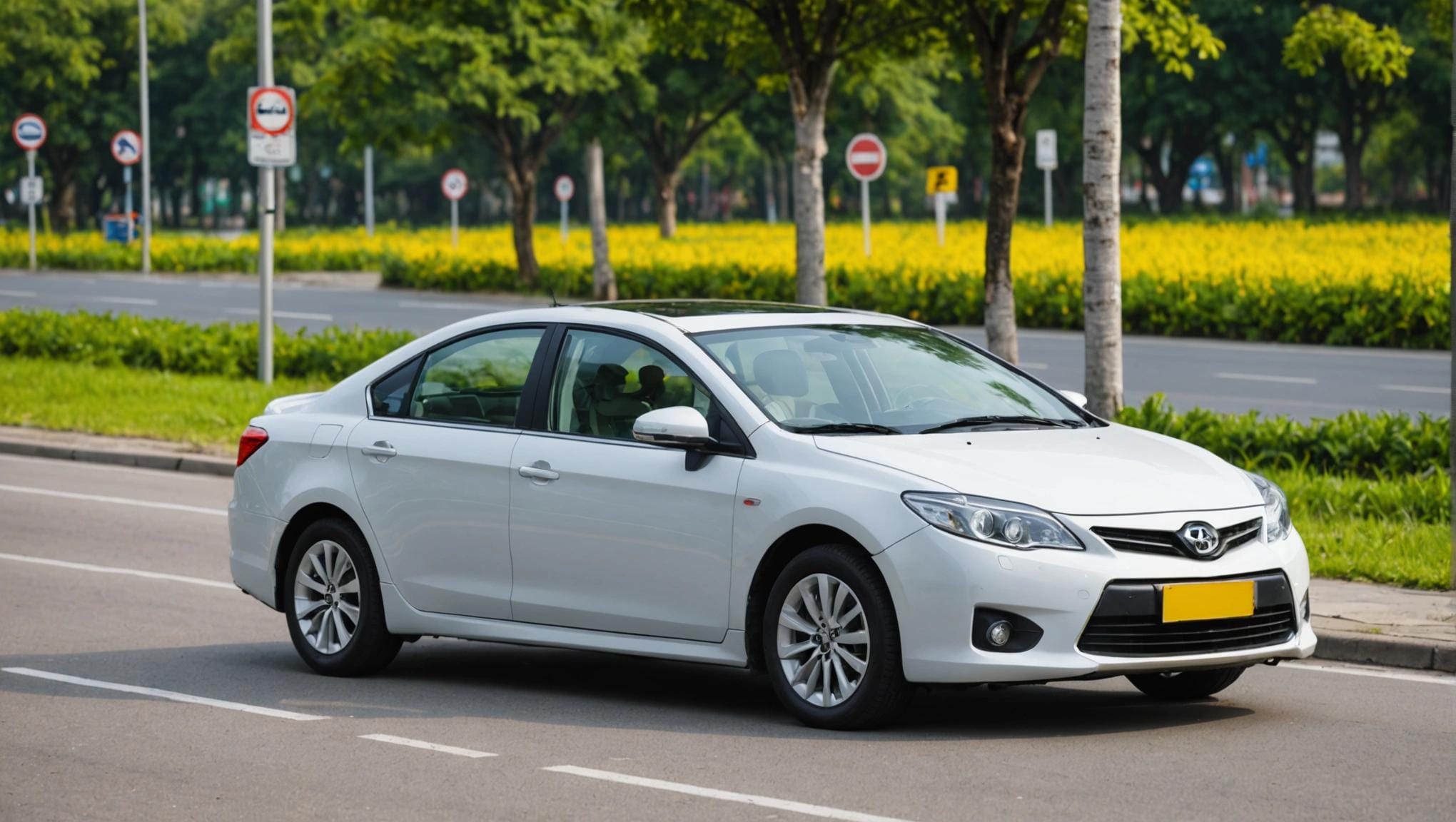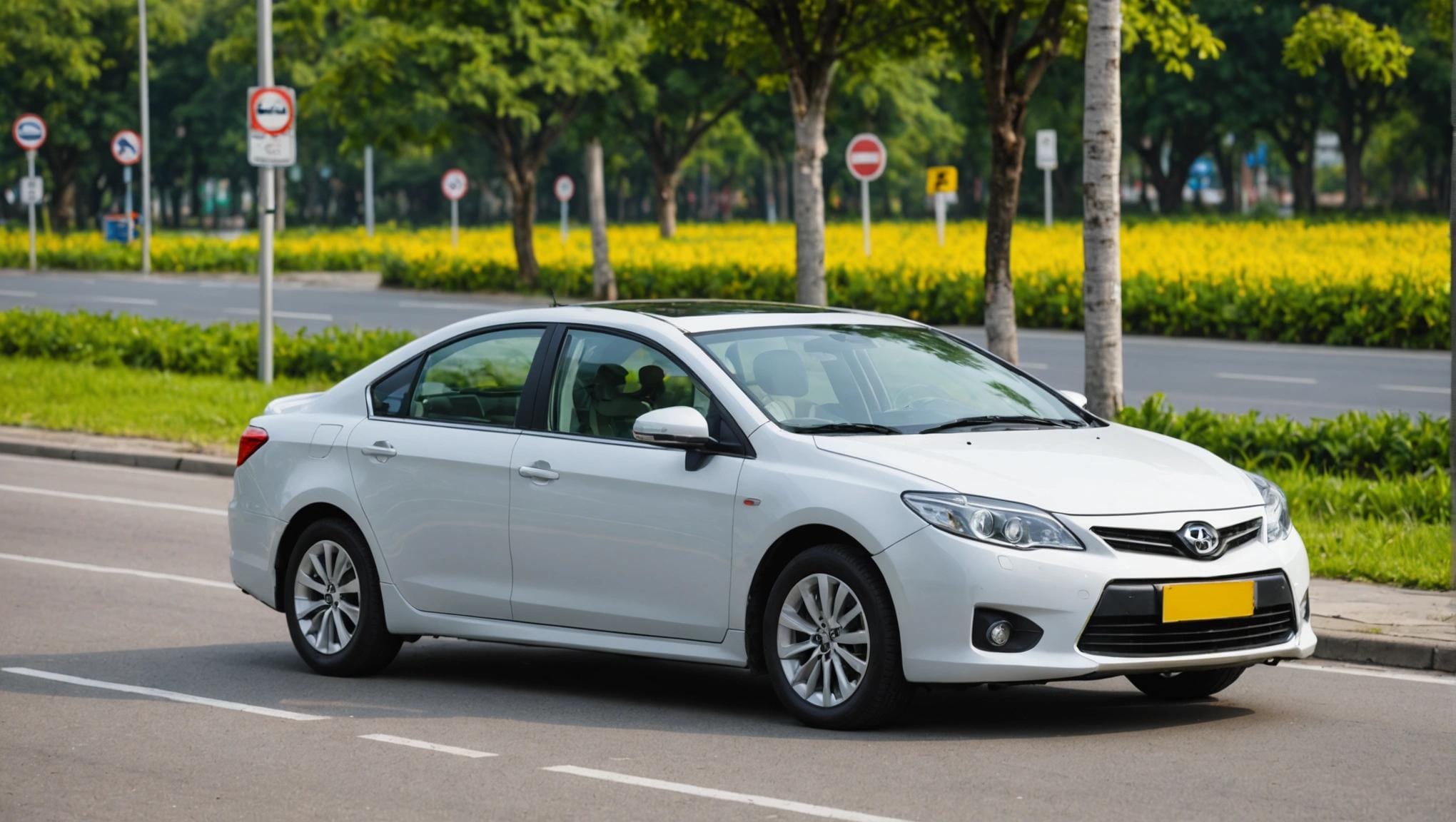Welcome to a comprehensive exploration of navigating the intricate world of health insurance as an expatriate in Thailand.

Living in a foreign country like Thailand can present unique challenges when it comes to securing the right health insurance coverage. This guide aims to provide you with all the essential information you need to make informed decisions about your health insurance needs while residing in the Land of Smiles. From unraveling the local healthcare system to identifying top insurance providers, we’ve got you covered. Whether you’re a long-term resident or a digital nomad, having the appropriate health insurance is vital for your peace of mind and overall well-being. Join us as we delve into the various health insurance options available, coverage requirements, associated costs, and valuable tips to help you navigate this crucial aspect of expat life in Thailand. By the end of this guide, you’ll be equipped to select the best health insurance plan tailored to your specific needs in this vibrant Southeast Asian nation.
Understanding Health Insurance in Thailand
health insurance is a critical component of financial planning and healthcare management, especially for individuals residing in Thailand. With a diverse range of health insurance plans available, it is essential to have a comprehensive understanding of the options, coverage details, and cost factors to make informed decisions that align with your healthcare needs.
Types of Health Insurance Plans Available
In Thailand, individuals can choose between public health insurance and private health insurance. Public health insurance, provided by the government, offers basic healthcare services to Thai citizens. On the other hand, private health insurance provides more extensive coverage, including outpatient care, hospitalization, specialist consultations, and additional benefits tailored to individual preferences.
Coverage Options and Limitations in Thailand
When selecting a health insurance plan in Thailand, it is crucial to consider the coverage options and limitations associated with each policy. While public health insurance covers essential services, private health insurance plans offer a broader spectrum of benefits. These may include coverage for alternative therapies, dental care, maternity services, and international medical treatment. Understanding the exclusions and limitations of a policy is vital to ensure that it meets your specific healthcare requirements.
Factors Affecting Health Insurance Costs
Various factors influence the cost of health insurance in Thailand. Age is a significant determinant, with younger individuals typically paying lower premiums compared to older policyholders. Pre-existing medical conditions, coverage limits, and the extent of coverage also impact insurance costs. Additionally, the choice between basic coverage and comprehensive plans affects the overall premium amount. It is advisable to assess your healthcare needs, financial capabilities, and risk tolerance to select a plan that strikes a balance between affordability and coverage adequacy.
Navigating the complexities of health insurance in Thailand requires careful consideration of the available plans, coverage details, and cost implications. By conducting thorough research, seeking professional advice, and comparing multiple insurance options, individuals can secure a policy that safeguards their health and financial well-being in the long run.
Emerging Trends in Health Insurance
As the healthcare landscape evolves, so do health insurance trends in Thailand. One notable trend is the increasing popularity of digital health insurance platforms that offer convenient access to policy information, claims processing, and virtual consultations. These platforms streamline the insurance experience, making it easier for policyholders to manage their healthcare needs efficiently.
Moreover, there is a growing emphasis on wellness programs and preventive care initiatives within health insurance offerings. Insurers are incentivizing healthy lifestyle choices by providing discounts or rewards for engaging in activities that promote well-being, such as regular exercise, health screenings, and nutrition counseling. By encouraging proactive health management, insurers aim to reduce long-term healthcare costs and improve overall population health.
The Rise of Tailored Insurance Solutions
Another trend in the health insurance sector is the emergence of tailored insurance solutions that cater to specific demographics or health concerns. For example, some insurers now offer specialized plans for expatriates living in Thailand, providing comprehensive coverage for international medical services, emergency evacuation, and language support. Similarly, there are insurance products designed for individuals with chronic conditions, offering personalized care management programs and access to specialized treatment facilities.
Staying informed about the evolving landscape of health insurance in Thailand is essential for making well-informed decisions about your healthcare coverage. By understanding the available plans, considering coverage options and limitations, and staying abreast of emerging trends, individuals can navigate the complexities of health insurance with confidence and secure a policy that meets their unique needs and preferences.
Living as an Expatriate: The Importance of Health Insurance
Living as an expatriate in a foreign land comes with its own set of challenges and adventures. Amidst the excitement of exploring new cultures and environments, one crucial aspect that should never be overlooked is health insurance. The importance of health insurance for expats cannot be emphasized enough, as it plays a vital role in ensuring their well-being and peace of mind while living abroad.
Ensuring Comprehensive Coverage
Health insurance for expats goes beyond just basic medical needs. It typically offers coverage for a wide range of services, including hospitalization, outpatient care, emergency treatment, and prescription drugs. This comprehensive coverage ensures that expats have access to quality healthcare without the fear of facing exorbitant out-of-pocket expenses.
Financial Protection and Peace of Mind
Medical emergencies can arise unexpectedly, and the costs associated with treatment can be overwhelming. For expats, especially in countries where healthcare costs are high, having health insurance provides the much-needed financial protection. It not only covers the expenses of medical treatments but also offers peace of mind, knowing that one is prepared for any unforeseen health issues.
Legal Requirements and Visa Conditions
In many countries, having health insurance is not just a choice but a legal requirement for expatriates. Visa conditions often mandate that expats have adequate health coverage during their stay. By complying with these regulations, expats can avoid potential penalties or complications related to their residency status, ensuring a smooth and hassle-free stay.
Additional Benefits
Apart from the core coverage, some health insurance plans for expats offer additional benefits such as coverage for preventive care, maternity services, mental health support, and even evacuation in case of emergencies. These added benefits enhance the overall well-being of expats and provide them with a sense of security in unfamiliar surroundings.
Health insurance is a lifeline for expatriates, offering security, financial protection, and compliance with legal regulations. It is not just a precaution but a necessity that should be carefully considered when planning to live abroad. Expats should explore their health insurance options diligently and select a plan that aligns with their specific needs and circumstances, ensuring a worry-free and fulfilling expat experience.
Choosing the Right Health Insurance Plan
When it comes to selecting a health insurance plan, especially for expats, there are several key considerations to keep in mind. Understanding these factors can help in making an informed decision that suits individual needs and preferences.
Key Considerations for Expats
For expatriates, choosing the right health insurance plan involves more than just looking at the basic coverage options. Factors such as coverage in multiple countries, access to international networks of healthcare providers, and emergency medical evacuation services are crucial. Additionally, considering pre-existing conditions, coverage for routine check-ups, and the ease of filing claims while living abroad are essential aspects to evaluate.
Comparison of Leading Insurance Providers
With a plethora of insurance providers in the market, it can be overwhelming to decide which one offers the best value. Conducting a thorough comparison of leading insurance providers based on factors like coverage limits, premium costs, network of hospitals, customer service, and reviews from other expats can help in narrowing down the options. It’s important to choose a reputable provider with a strong track record of serving expatriates and offering comprehensive coverage.
Tailoring a Plan to Individual Needs
Every individual has unique healthcare needs and preferences. Tailoring a health insurance plan to suit these individual requirements is essential for ensuring adequate coverage. Whether it’s adding coverage for specific medical conditions, including dental and vision care, or opting for additional wellness benefits, customizing the plan can provide peace of mind and financial security in times of need.
Additional Considerations for Expats
Apart from the basic coverage considerations, expats should also look into the portability of the insurance plan, especially if they anticipate moving to different countries in the future. Understanding the network of healthcare providers in their current location and potential destinations is vital for seamless access to medical services.
Moreover, expats should inquire about the process of renewing the insurance plan and any restrictions that may apply when seeking medical treatment abroad. It’s advisable to clarify the procedures for emergency situations and the extent of coverage for unexpected events.
The Importance of Wellness Programs
Many health insurance providers offer wellness programs aimed at promoting healthy living and preventive care. Expats should explore the wellness benefits included in the insurance plan, such as access to fitness facilities, nutritional counseling, mental health support, and preventive screenings. Engaging in wellness activities can not only improve overall health but also reduce the risk of developing chronic conditions.
Selecting the right health insurance plan for expats involves a thoughtful evaluation of key considerations, a comparison of leading insurance providers, customization of the plan to meet individual needs, and additional considerations like portability and wellness programs. By prioritizing comprehensive coverage, accessibility to healthcare services, and proactive wellness initiatives, expatriates can safeguard their health and well-being no matter where their journey takes them.
Navigating Thailand’s Healthcare System
Thailand is a popular destination for expatriates seeking quality healthcare at affordable prices. The country boasts a wide range of healthcare facilities, including public hospitals, private hospitals, clinics, and specialized medical centers. Expats should familiarize themselves with the different options available to ensure they receive the care they need.
Overview of Healthcare Facilities for Expats
- Understanding the claim procedures and utilizing insurance benefits is crucial for expats living in Thailand. It is important to know what services are covered by your insurance policy, how to file a claim, and which healthcare facilities accept your insurance. By being informed about these processes, expats can navigate the healthcare system more effectively and avoid unexpected expenses.
Claim Procedures and Utilizing Insurance Benefits
- One of the challenges expats may face when seeking healthcare in Thailand is language barriers. While many healthcare providers in popular expat areas speak English, there may still be instances where communication is difficult. Expats should consider using interpreters or translators when necessary to ensure clear communication with healthcare providers. Additionally, being aware of cultural differences in healthcare practices can help expats navigate the system with respect and understanding.
Language Barriers and Cultural Considerations
- Thailand is known for its high standards of healthcare quality and accreditation. Many hospitals in Thailand are internationally accredited, ensuring that they meet stringent quality and safety standards. Expats can have peace of mind knowing that they are receiving care from reputable institutions that adhere to global healthcare guidelines.
Healthcare Quality and Accreditation
- While healthcare in Thailand is generally more affordable than in Western countries, expats should still be aware of the costs involved. Understanding the pricing structure of healthcare services, including consultations, procedures, and medications, can help expats budget for their healthcare needs. It is also important to explore payment options, such as cash payments, credit cards, or direct billing through insurance providers, to ensure a smooth healthcare experience.
Cost of Healthcare and Payment Options
- In addition to seeking treatment when needed, expats in Thailand should also focus on preventive healthcare and wellness programs. Many healthcare facilities offer preventive screenings, vaccinations, and wellness checks to help individuals maintain their health and well-being. By taking a proactive approach to healthcare, expats can prevent illnesses and address health concerns before they escalate.
Preventive Healthcare and Wellness Programs
- In case of emergencies, expats should be aware of the available emergency services and medical evacuation options in Thailand. It is essential to know the contact information for emergency services, such as ambulance providers and hospitals with emergency departments. Expats should also consider obtaining medical evacuation insurance to cover the costs of transportation to a higher level of care if needed.
Emergency Services and Medical Evacuation
- Navigating Thailand’s healthcare system as an expat requires understanding the available healthcare facilities, claim procedures, language barriers, cultural considerations, healthcare quality, costs, preventive healthcare, emergency services, and medical evacuation options. By being informed and prepared, expats can access quality healthcare services in Thailand and prioritize their health and well-being.
Conclusion
Managing Your Health Insurance Effectively
Managing your health insurance effectively is crucial to ensure you have the coverage you need when you need it. Here are some key strategies to help you navigate the complexities of health insurance:.
- Document Organization and Record-Keeping
Keeping all your health insurance documents organized is essential. Create a dedicated folder or digital file to store all policy documents, claim forms, and correspondence. This will make it easier to access information when needed and track any changes to your coverage. Additionally, consider making digital copies of important documents and storing them securely online or in a cloud-based service for easy access from anywhere.
Policy Renewal and Updates.
Stay on top of your policy renewal dates and any updates to your coverage. Review your policy regularly to ensure it still meets your needs and make any necessary changes before the renewal date. Take note of any changes in premiums, deductibles, or coverage limits that may impact your out-of-pocket expenses. It’s also advisable to compare different insurance plans annually to ensure you are getting the best coverage at the most competitive rates.
Seeking Professional Advice When Necessary.
Health insurance can be complex, and it’s okay to seek professional advice when needed. If you have questions about your coverage, claims, or need help understanding your policy, don’t hesitate to reach out to your insurance provider or a healthcare advocate. They can provide valuable guidance and ensure you make informed decisions regarding your health insurance. Moreover, consider consulting with a financial advisor to understand the tax implications of your health insurance premiums and any potential savings or benefits you may be eligible for.
Utilizing Preventive Services and Wellness Programs.
- Many health insurance plans offer preventive services and wellness programs aimed at promoting overall health and well-being. Take advantage of these offerings, such as annual check-ups, vaccinations, and screenings, to detect and address any health issues early on. Participating in wellness programs that focus on nutrition, fitness, and stress management can also help you maintain a healthy lifestyle and potentially reduce your healthcare costs in the long run.
By following these strategies and staying proactive in managing your health insurance, you can have peace of mind knowing you are prepared for any healthcare needs that may arise. Remember, your health is your most valuable asset, and investing time and effort in understanding and optimizing your health insurance coverage is a wise decision for your overall well-being.
Emergency Preparedness and Assistance
Emergencies can happen at any time, and being prepared can make all the difference in ensuring your safety and well-being. Here are some essential points to consider for emergency preparedness and assistance:.
Establishing Emergency Contact Information
It is crucial to have important contact numbers readily available in case of emergencies. Make sure to save local emergency service numbers such as 191 for police, 199 for fire, and 1669 for medical emergencies. Additionally, keep contact information for your country’s embassy or consulate in Thailand and any relevant insurance providers. Having these contacts easily accessible can save valuable time during a crisis.
Understanding Emergency Services in Thailand
Familiarize yourself with how emergency services operate in Thailand to know what to expect in urgent situations. Learn about the local emergency response procedures and the services provided. Understanding the process can help you act swiftly and effectively during emergencies.
Utilizing Insurance for Emergency Situations
If you have travel insurance, it is essential to understand the coverage it offers during emergencies. Review your policy to know what is included, such as emergency medical assistance, evacuation services, and coverage for unexpected situations. Always carry a copy of your insurance policy and contact details with you to access help promptly.
Creating an Emergency Plan
Developing an emergency plan can further enhance your preparedness. Identify safe locations, establish communication protocols with travel companions, and have a basic emergency kit with essentials like first aid supplies, medications, and important documents.
Staying Informed and Alert
Stay informed about local news and alerts to be aware of any potential risks or emergencies in the area. Sign up for travel advisories and alerts from your embassy for additional safety information.
Cultural Sensitivity in Emergencies
In times of crisis, understanding and respecting the local culture can be crucial. Be aware of cultural norms that may impact emergency response or assistance. Knowing how to communicate effectively and respectfully with local authorities can facilitate smoother interactions during emergencies.
Language Considerations
Language barriers can pose challenges during emergencies. It is advisable to learn some basic local phrases or carry a translation guide to help convey important information when seeking assistance. Additionally, having key medical terms translated can aid in communicating health concerns accurately.
Community Resources and Support
Explore community resources that can offer assistance during emergencies. Local organizations, support groups, or expat communities may provide valuable guidance, support, or temporary shelter in crisis situations. Establishing connections within the community can be beneficial in times of need.
By taking proactive steps and staying informed, you can better navigate emergencies and ensure that you receive the necessary assistance when needed. Remember, preparedness is key to handling unexpected situations effectively.
Cultural and Lifestyle Considerations
Healthcare Norms and Practices in Thailand
Thailand is known for its unique healthcare system, which combines traditional medicine with modern practices. Understanding the local healthcare norms and practices can help expats navigate the system more effectively. In Thailand, healthcare is easily accessible and of high quality. Both public and private hospitals offer a range of services, from routine check-ups to specialized treatments. Expats should consider obtaining health insurance to cover any medical expenses that may arise during their stay. Pharmacies are also widespread in Thailand, making it convenient to purchase over-the-counter medications.
Maintaining a Healthy Lifestyle as an Expat
Moving to a new country can be a significant lifestyle change. It’s essential for expats to prioritize their health and well-being by adopting healthy habits such as regular exercise, balanced diet, and stress management techniques. Thailand offers a variety of outdoor activities, such as hiking, yoga, and Muay Thai, which expats can explore to stay active. Additionally, the country’s tropical climate allows for fresh and diverse produce, making it easier to maintain a nutritious diet. Expats can also benefit from exploring traditional Thai practices like meditation and Thai massage, known for their stress-relieving and rejuvenating effects.
Integration into the Local Healthcare Community
Building connections within the local healthcare community can be beneficial for expats. This involves finding a trusted local doctor, understanding the healthcare infrastructure, and being aware of available resources for healthcare services. Expats can attend health seminars, join fitness classes, or participate in community health events to network with healthcare professionals and fellow expats. Establishing a support system within the local healthcare community can provide expats with valuable insights and assistance in times of need. Moreover, volunteering at local health-related organizations or clinics can not only help expats integrate better but also contribute positively to the community. By actively engaging with the local healthcare community, expats can gain a deeper understanding of the healthcare system, cultural practices, and potentially even make lasting friendships with locals who share similar health interests.
Navigating the world of health insurance as an expat in Thailand can be complex, but with resources like the one provided by. Thailand Insurance Hub , the process becomes much more manageable. With their extensive experience and tailored solutions for foreigners in Thailand, finding the right health coverage to suit your needs is made easier. Whether you are an individual or a business entity, their platform offers a comprehensive range of options, ensuring transparency and clarity throughout the decision-making process. For expats and foreign nationals seeking reliable health insurance in Thailand, Thailand Insurance Hub is a valuable one-stop destination. Stay informed, stay covered, and visit their website today for more information.













